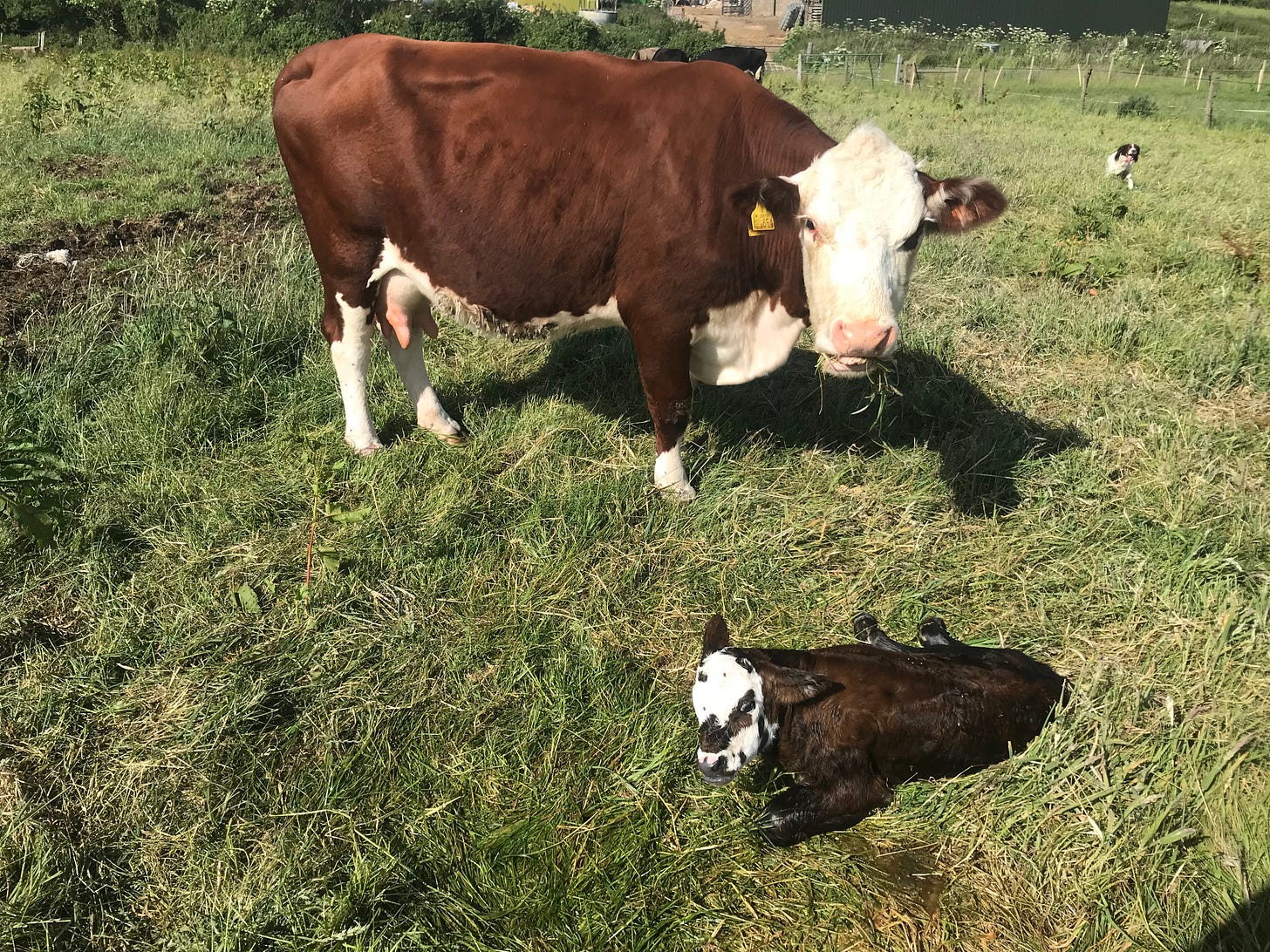Northamptonshire drought: ‘We could be facing food shortages’
Farmers are worried about the impact of the dry hot weather
By Natalie Bloomer
To support our independent journalism and receive our stories straight to your inbox sign up below
“It’s bone dry out there. The grass has dried off so we’re having to feed livestock with winter supplies, that means we could be short over winter. We’ve just got to hope it gets better.”
Tim Hankins from the Peartree Farm near Aldwincle, was seeking refuge from the sun in his air conditioned tractor when we spoke to him yesterday. He’d made an early start on the farm at 5am to avoid the worst of the heat and was about to start an afternoon of straw bailing.
“Straw is okay but we’re down on hay due to the drought and because we’re already using it for feeding. Our priority is making sure the cows and lambs are in good condition for the Spring, if they don’t get enough nutrition they might not produce [offspring].”
Tim says the Ukraine crisis coupled with the drought conditions the UK is currently experiencing could lead to rising prices and food shortages next year.
“Ukraine was the breadbasket of Europe. They’ve recently started to ship some wheat out of the country again but not to the same levels and it won’t take much to cause more disruption to that.
“And vegetable growers here are struggling because of the drought, which could lead to higher prices…the public needs to be aware we could be facing food shortages.”
Last week the Guardian reported on leaked documents from the National Drought Group warning of mass crop failure. The deputy president of the National Farmers’ Union (NFU) Tom Bradshaw told the newspaper:
“We have members who can’t abstract irrigation water but still in East Anglia there is no hosepipe ban. We can’t believe that we aren’t allowed to irrigate to grow the fruit and vegetables the country needs but there is no ban on excessive consumer use.
“Defra ministers need to prioritise food production. Feeding people is critically important. The minister Steve Double was on the call today and we made it clear to him that we need to plan on there being a dry winter and we need to fill our reservoirs, or next year’s food production could be in the balance. Irrigated vegetables are something a lot of people will be eating; if we don’t have irrigation there will be very low availability [of vegetables].”
On Friday, drought was declared in eight areas including Northamptonshire by the Environment Agency.
However, despite East Anglia being one of the driest regions in the country, Anglia Water has insisted that resilience measures the company has invested in mean that reservoirs have been topped up to around 80 per cent and that a hosepipe ban is not yet necessary.
“Over the last decade we’ve spent hundreds of millions improving resilience. Schemes like a new water treatment works for Lincoln, massive engineering schemes that mean we can move water all the way from Rutland to Milton Keynes, and the creation of additional back-up supplies for Norwich, have all helped," Ciaran Nelson, a spokesperson for Anglian Water, said.
“Just because we don’t have a hosepipe ban, though, doesn’t mean people can be reckless with water. The less we and our customers use, the more can be left in the environment. That’s why, earlier this year, we reduced the water we take from the River Nene so farmers and nature reserves downstream could use more…”
For Tim and others like him, the problems caused by the drought come on top of other pressures already facing the farming industry. Rising costs and the loss of EU subsidies are also key concerns.
“Fuel prices are double what they were last year. We were paying roughly 54p for a litre of diesel then and now it’s £1. Fertilizer prices are through the roof, they’ve gone from £300 a tonne to £1,000.
“We have high wheat prices now which helps but if they collapse next year who will protect us? All of this is a real worry.”
The government’s minister for water, Steve Double said:
“We are currently experiencing a second heatwave after what was the driest July on record for parts of the country. Action is already being taken by the government and other partners including the Environment Agency to manage the impacts.
“All water companies have reassured us that essential supplies are still safe, and we have made it clear it is their duty to maintain those supplies.
“We are better prepared than ever before for periods of dry weather, but we will continue to closely monitor the situation, including impacts on farmers and the environment, and take further action as needed.”




“National Drought Group [is] warning of mass crop failure” and “Action is already being taken by the government… to manage the impacts”. How about taking action to manage the causes? The government lacks the courage to make the rapid and radical changes necessary to mitigate climate change. Yesterday protesters staged a theatrical protest in Parliament Square by posing as corpses while real doctors from Extinction Rebellion covered them in shrouds. It won’t be long before life imitates this art.